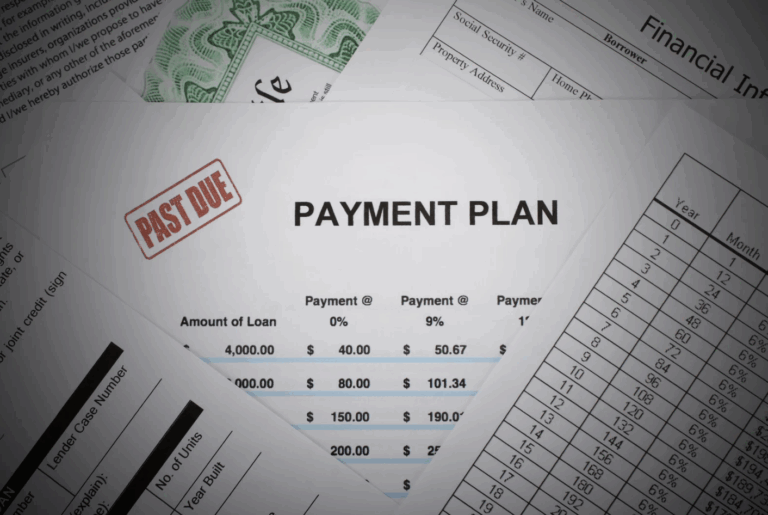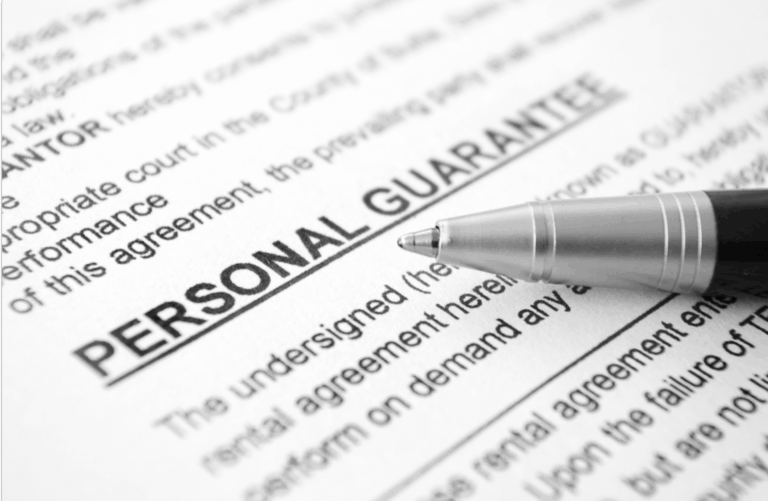What is a UCC Filing?
A UCC filing, officially known as a Uniform Commercial Code (UCC-1) statement, is a document creditors use to notify other creditors that you’ve used certain assets as collateral for a loan and that, therefore, the lender has an interest in those assets.
How UCC Filings Work
The Uniform Commercial Code is a set of laws that govern commercial transactions in the United States. UCC-1 filings, in particular, are used by creditors to stake their claim to certain assets.
When you take out any secured business financing or funding, you agree to put up certain assets as collateral. If you fail to repay your loan, the creditor has the right to seize those assets. The UCC filings, which creditors file with the Secretary of State in the appropriate state, essentially let other lenders know they have a claim to certain assets.
There are two types of UCC filings:
- UCC liens against a particular asset: This is often used when you’re purchasing a piece of business equipment with a secured loan. The UCC filing doesn’t apply to all of your assets, only the one securing the loan.
- Blanket UCC liens against multiple assets: In other cases, a business could use some or all of its assets as collateral for a loan. In that case, a blanket UCC lien is filed against their assets.
UCC-1 financing statements are a matter of public record. Anyone, including other lenders, can search a state’s UCC database to find out what liens a borrower has against their assets. Having a UCC filing against specific assets will likely limit your ability to use it as collateral for any other financing.
Duration and Renewal of UCC Filings
Most UCC lien filings have a duration of five years. However, the creditor can renew the filing for additional five-year terms to last the entirety of the loan. Certain types of UCC filings, including those for manufactured homes, tend to have longer durations, often 30 years.
Impact of UCC Filings on Business Credit
When a UCC-1 lien is filed against one or more of your business assets, that lien will appear on your business credit report for five years (or longer, depending on the loan term). Other creditors can see this filing. However, the filing won’t negatively affect your business credit score unless you default on the loan.
Role of UCC Filings in Securing Business Loans
UCC filings are an important part of secured small business loans. When you take out a loan, the lender takes on a level of risk by giving you money without knowing for certain whether you’ll pay it back. Secured loans reduce some of that risk by allowing a lender to repossess a business’s asset if they fail to repay the loan. The UCC filing allows the creditor to make a public notice of their lien and their ability to seize the property in the case of a default.
How Lenders View UCC Filings
For lenders offering secured loans or MCA’s, UCC filings offer a way for them to stake their claim to certain business assets. If you default on your merchant cash advance or loan, the lender has the right to seize the asset(s) in question. And if there are multiple liens against a property, a UCC filing gives that lender the first priority to repossess that asset.
For other lenders, a UCC filing informs them of liens against the property. If they see that a specific collateral already has a UCC lien staking a claim to it, they aren’t likely to offer a loan secured by the same asset(s).
UCC Filings and Personal Credit
When you’re taking out a business loan, it’s natural to wonder how it could affect your personal credit. Let’s talk about the difference between your business credit and personal credit, and when your personal credit could be impacted by a UCC filing.
Difference Between Business and Personal Credit
Your business and personal credit report are two different entities. As you may know, your personal credit report is connected to your Social Security numbers and summarizes your current and past credit activity, including loans, credit cards, and lines of credit.
Your business credit report is similar, but it’s connected to your business’s tax identification number instead. It summarizes your business credit activity, including any business loans, credit cards, or lines of credit.
Your personal credit information is reported to three credit bureaus, Equifax, Experian, and TransUnion. Your business credit information is reported to Equifax Small Business, Experian Business Credit, and Dun & Bradstreet (D&B).
Conditions Under Which a UCC Filing Might Affect Personal Credit
Generally speaking, UCC filings against your business won’t appear on your personal credit report or affect your personal credit score. However, there is one specific exception.
In some cases, you may be asked to provide a personal guarantee on a business loan or a personal guarantee on an MCA debt. This guarantee states that if your business can’t repay its debts, you’ll be personally responsible for them. The one situation where a UCC filing could affect your personal credit score is if you offer a personal guarantee on a loan. While the personal guarantee may not appear on your personal credit report, if you default on the loan repayment, that could appear on your personal credit.
The good news is that as long as you don’t provide any personal guarantees or don’t miss any loan payments, you don’t have to worry about your personal credit being affected.
Examples of When Personal Credit May Be Impacted
Let’s say you’re applying for a business line of credit to access some working capital. The lender files a blanket UCC lien against your business assets, but also requires a personal guarantee in case your business can’t repay its debts.
Fast forward a couple of years and your business has gone under, and you no longer have the assets securing your business loan. The creditor will hold you personally responsible for the debts due to the personal guarantee and can sue you for the debt owed. If you can’t personally repay the loan, the default will appear on your personal credit report, just as if you defaulted on any other loan.
Common Myths About UCC Filings and Personal Credit
If you’re concerned about how a UCC filing could affect your personal credit, it may be helpful to read and understand a few common misconceptions.
Misconception 1: UCC Filings Directly Appear on Personal Credit Reports
UCC filings appear on your business credit report to let other lenders know that a particular asset has a lien against it. However, they generally don’t appear on your personal credit report.
Misconception 2: UCC Filings Always Negatively Affect Personal Credit
As we mentioned, UCC filings generally don’t negatively affect your personal credit. The only situation where it could negatively impact your credit is if you’ve offered a personal guarantee and defaulted on the loan.
Misconception 3: Personal Guarantees are Always Required with UCC Filings
While personal guarantees are sometimes required with business loans and with most MCA funders, that’s not always the case, especially with a UCC filing. With an unsecured business loan, a personal guarantee helps to reduce some of the lender’s risk. However, if the loan is secured with a UCC lien, the creditor already has less risk since it can repossess the collateral asset(s). Therefore, a personal guarantee may not be necessary.
How to Remove a UCC Filing
By default, UCC filings have a duration of five years, and can be renewed for longer loan terms. However, it may be the case that your loan term ends before the UCC lien duration. In that case, it’s possible to have the filing removed.
Monitoring UCC Filings Associated With Your Business
As a business owner, it’s a good standard practice to monitor and be aware of any UCC-1 statements against your business. You can find these two different ways:
- Search with your state’s database: State governments — often the Department of Finance or the Secretary of State — maintain databases of UCC filings. To search for a filing, you’ll typically only need the business or business owner’s name. Searching this database in your state can help you find if any creditors have UCC liens against your company’s assets.
- View your business credit report: In addition to your state’s database, UCC filings also appear on your business credit report. Reviewing your credit report regularly can make you aware of any new or existing filings against your business’s assets.
Steps to Remove an Unnecessary UCC Filing
If you pay off your business loan early or pay it off before the UCC filing duration ends, then it’s possible to have your UCC lien removed. It’s the creditor’s responsibility to remove the filing. It does this by filing a UCC termination statement with your Secretary of State’s office.
If you find a lender hasn’t filed the UCC termination, at least not in a timely manner, then it’s worth reaching out to request that they do so. Just make sure to continue monitoring filings against your business to make sure it’s removed.
Importance of Reviewing Credit Reports Regularly
Regardless of whether you believe you have any UCC filings against your business’s assets, it’s important to review your business credit reports regularly, just as it is with your personal credit reports.
Reviewing your business credit report regularly helps make you aware of anything on your credit report you don’t know about, whether it’s a UCC filing or something else. It can also help identify steps to take to improve your credit, including catching up on past-due loans. Finally, reviewing your business credit report can help you identify errors that need to be resolved.
Can You Avoid a UCC Lien?
A UCC filing may be necessary if you’re entering into a secured business loan agreement or with a merchant cash advance. However, they aren’t required for all loans. First, if you’re taking out a secured, you can simply ask your lender if they’ll file a UCC lien. You may be able to find a lender that won’t file one.
Another option is to opt for an unsecured loan instead. Unsecured loans don’t have collateral, meaning the creditor can’t place a lien against any of your property. On one hand, these loans are beneficial because they don’t put any of your assets at risk.
However, they also have some downsides. First, they may have higher interest rates since the lender takes on more risk. Unsecured loans may also require a personal guarantee, especially if you don’t have a strong business credit history.
If you need help, call Tayne Law Group at (866) 890-7337 or fill out our short contact form, and we’ll get back to you right away. We’ve been helping businesses resolve their debt for over 20 years, and our law firm has won countless awards for our service. All conversations are confidential, and we never share or sell your information.





